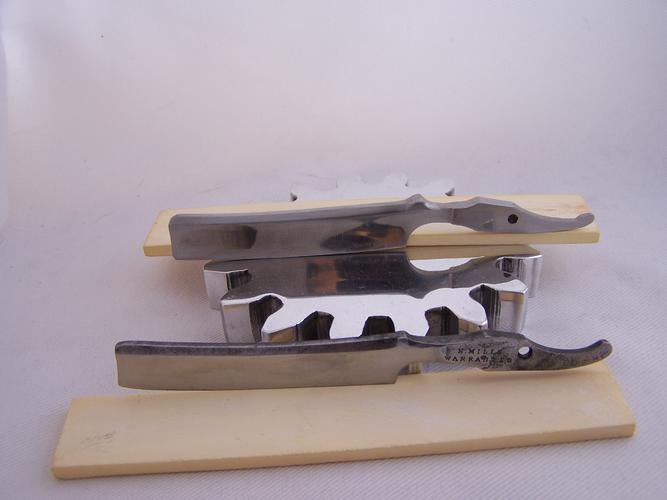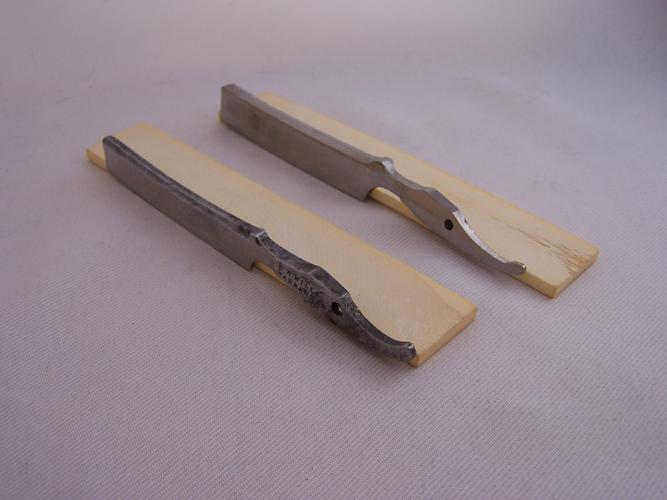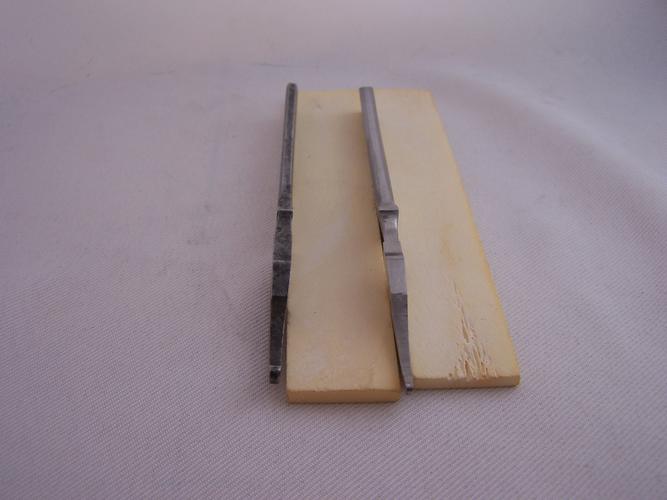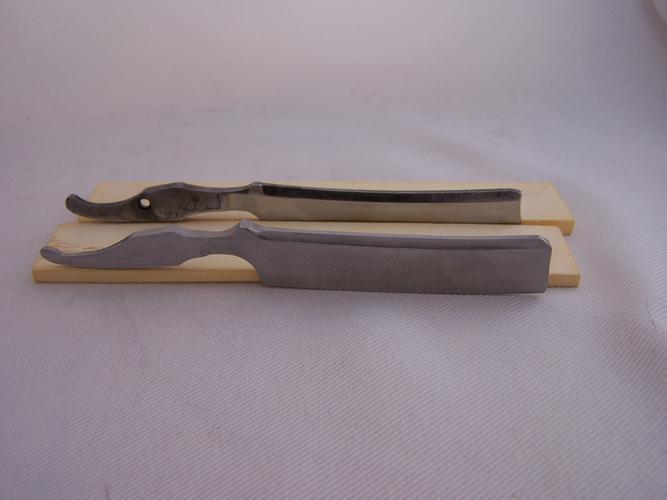Results 1 to 10 of 101
Threaded View
-
06-09-2014, 07:26 PM #1Senior Member




- Join Date
- Nov 2012
- Location
- Across the street from Mickey Mouse in Calif.
- Posts
- 5,320
Thanked: 1185 RSO # 1
RSO # 1
I bought some 1/4 by 3/4 01 to play with and learn the forge and grinder. The first piece I used (and let others use) to get acquainted to the grinder. This piece turned into something after forging a tang. I had no thought pattern except I picked it up one day and decided to see how hard it would be to replicate an old favorite of mine with some style of my own added.
The American point, if there is such a thing. If not there is now :<0) I will explain the details of my version if your really past the joke of it. The blade will be 5/8 x 3 " and the bone in the picture will be the scales for it.

It's not an exact copy and I wasn't going for that. This is my first grind :<0)

I have to hit the top of the tang some more near the spine. I hadn't noticed the transition on the Mills being part of the drop in the spine. So many details to think about on this one.

The Mills had some seriously bad regrinding done and so I copied the details from the back side of it more or less. I think I will wait until it is heat treated to do any more clean up on the detail work. There are more fine details like rounded bevels in the thumb notches and things like that.

Just before the heat treat I am going to try to punch the pin hole blacksmith style. I hadn't thought about a hole until the thing actually started to look like it was going to work out. Now it's so freaking hard no drill will penetrate it. I think the blacksmith method (if it works ) is going to be more my style of custom anyway. Old methods as much as possible and old looks. Clones or recreations if you will.
So the plan now is 1. A little more grinding on the spine/tang transition to smooth it out for stropping. 2. 1 more heat to punch the hole. 3. Right after that heat bring it to temp and quench. Not sure which oil to use so I could use best suggestion there. I don't have a lot of room or bucks for 5 gallons of quenching oil right now. 4. Final grind will be 8" on the blade face. 5. Check all the detail work and finish as necessary. 6. Make some scales. ( bone is new territory for me). Can hardly wait to hone and try it.
Thanks for looking and stop me before I make any big mistakes. :<0)Good judgment comes from experience, and experience....well that comes from poor judgment.
-


 139Likes
139Likes LinkBack URL
LinkBack URL About LinkBacks
About LinkBacks






 Reply With Quote
Reply With Quote